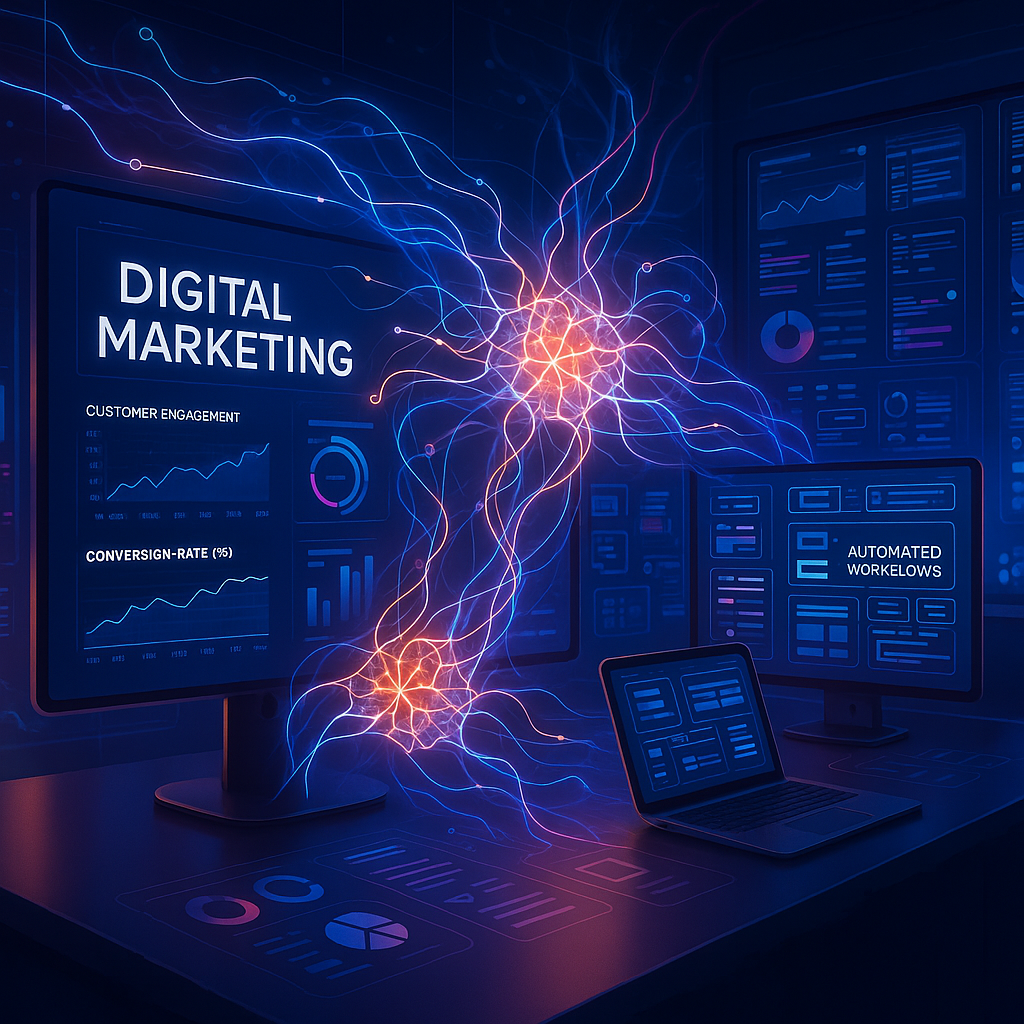
Transforming Customer Engagement with AI Marketing Automation & Custom Software
Introduction
In 2025, the digital marketing landscape continues to evolve dramatically with the integration of artificial intelligence (AI) and marketing automation. When paired with innovative custom software design, these technologies unlock new dimensions of customer engagement. This article dives into the transformative power of AI-driven marketing automation and bespoke software solutions, revealing how they together revolutionize brand-customer interactions.
The Synergy Between AI and Marketing Automation
AI and marketing automation are distinct yet deeply complementary. Marketing automation streamlines repetitive marketing tasks, enabling timely and data-driven communication with customers. AI elevates this by introducing intelligent decision-making capabilities — analyzing vast datasets, predicting customer behavior, and personalizing interactions in real time.
Personalization at Scale
Personalized marketing is no longer a luxury but a necessity. AI algorithms process behavioral signals such as browsing patterns, purchase history, and social interactions to forecast preferences. Marketing automation platforms then execute finely tuned campaigns targeting segments or even individuals automatically, ensuring customers receive relevant offers and content.
Predictive Customer Journey Mapping
Combining AI’s predictive analytics with automation enables marketers to anticipate the next steps in a customer’s journey. For instance, AI might identify when a prospect is likely to abandon a shopping cart and trigger automated reminder emails or special incentives tailored to recapture interest.
Role of Custom Software Design
Generic marketing tools can provide a baseline, but custom software design tailors AI and automation capabilities to specific business contexts, enhancing effectiveness and agility.
Tailored Integration
Custom software facilitates seamless integration of AI-driven marketing automation with existing CRM systems, data warehouses, and customer touchpoints. This harmonization ensures that customer insights and interactions flow uninterrupted across the organization, creating a unified customer profile for precision marketing.
Unique Feature Development
Businesses may need features outside of off-the-shelf solutions. For example, a retailer might develop custom AI-powered chatbots that not only provide customer service but also collect nuanced sentiment data used in subsequent marketing messages, creating a feedback loop that continuously refines engagement strategies.
Scalability and Adaptability
Custom software can be built to scale dynamically with business growth and adapt rapidly to market changes or new AI breakthroughs, unlike rigid commercial products. This flexibility empowers businesses to innovate in customer engagement ahead of competitors.
Innovative Use Cases in 2025
Hyper-Personalized Email Campaigns
Retail brands employ AI to analyze customer buying cycles and automate email delivery at optimal engagement times with dynamically generated product recommendations. Custom software orchestrates these AI models with email marketing systems ensuring seamless execution and monitoring.
Intelligent Social Media Automation
Marketing teams use bespoke AI tools that scan social media trends and customer feedback in real time, automating relevant content posting and engagement. This keeps the brand responsive and relatable, leveraging custom algorithms tuned for the brand’s unique audience.
Dynamic Website Content Customization
AI-powered custom software personalizes web page content based on visitor profiling instantly. Returning customers see tailored recommendations and offers, while new visitors receive guided experiences to highlight relevant products or services, significantly boosting conversion rates.
Challenges and Considerations
While the integration of AI and marketing automation with custom software design offers rich potential, businesses face challenges such as data privacy compliance, algorithm transparency, and ensuring the human touch remains central in automated communications to avoid alienating customers.
Moreover, building and maintaining custom software requires skilled teams and significant investment, which should be weighed against the strategic value of enhanced customer engagement capabilities.
Looking Ahead: The Future of AI and Automation in Marketing
As AI models become more sophisticated and accessible, the next frontier lies in augmented creativity and emotional intelligence within marketing automation. Custom software designs will increasingly incorporate emotional analysis and biometrics to further refine engagement strategies, crafting experiences that resonate deeply on personal levels.
The convergence of AI, marketing automation, and bespoke software in 2025 is not just a technological evolution; it's a paradigm shift in how brands understand and connect with their customers — turning every interaction into a meaningful and value-driven experience.




